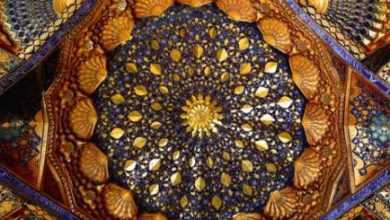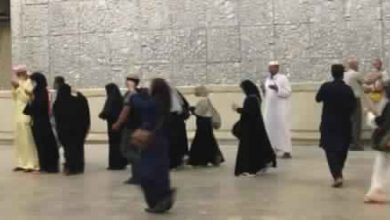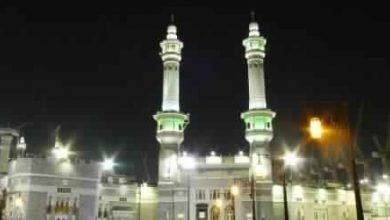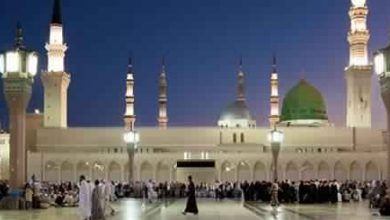THE ESSENCE OF HAJJ – PART 3
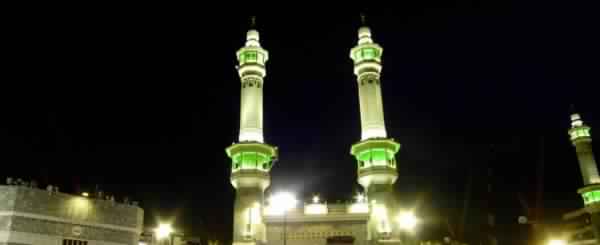
The significance of hajj
Many people tend to overlook the main purpose of the hajj, and are preoccupied with the hotel arrangements, the menu and the transport. During the hajj itself, we are distracted by the dinner buffet, making new friends, and the seating arrangements on the coach. As the Muslim world grows more affluent and superficial, hajj and umrah are treated like vacations rather than a time of purposeful worship.
Hajj is to remind us to capture our desire and nafs. During the peak of the hajj rituals, our behaviour, appearance, clothing and even interaction are tightly regulated. We are placed in a condition of extreme austerity and simplicity in order to remove our dependence on dunia, and to curb any desire we have apart from Allah’s pleasure.
If we were invited to the house of a king, or even a famous celebrity, we would be in awe of our surroundings and extra careful of the dress code, manners and even the tone of voice. What about when we are the guest of Allah, one who created the universe and everything in it, including ourselves and the people that we admire?
Why is it so important to observe the correct manner (adab) of hajj? It is because this is our chance to amend our book of good and bad deeds and we want to get it right. Think of all the sins we have committed in our lives, from the minute we reached adulthood by Islamic standards. The sins we committed knowingly or out of ignorance, whether secretly or openly. The mistakes we made as reckless teenagers, the heedlessness of akhirah which spilt over into our adult behaviour, the trivialisation of Islam in our daily lives. The amount of things we said about other people behind their backs. The lies, half truths, deceptions, broken promises and other mistakes that we made, intentionally or not. The contemptuous way we looked down on others. For the majority of us, all our limbs have sinned at some point, from what we say, what we type with our fingers, the places our feet take us to, the sights that we allow our eyes to see, the people we allow to touch us, and the things that we listen to: and these same limbs will testify for or against us on the Day of Reckoning. Mostly, the times where we took the deen lightly and repeatedly failed to fulfil Allah’s rights over us. We have plenty to atone for.
Separation from dunia
Hajj is [during] well-known months, so whoever has made Hajj obligatory upon himself therein [by entering the state of ihram], there is [to be for him] no sexual relations and no disobedience and no disputing during Hajj. And whatever good you do – Allah knows it. And take provisions, but indeed, the best provision is fear of Allah. And fear Me, O you of understanding. (Al Baqarah 2:197)
The time of hajj gives us the chance to purify ourselves completely, and this requires total and utter devotion to Allah to the exclusion of all other dunia affairs. This is why marriage, physical relationships and even witnessing a marriage ceremony are forbidden. During this time, we are severed from things which can hijack our emotions and attention. The hajj ritual gives us a few short days to control our nafs. It trains us to rise above our personal desires and be merciful and considerate to others. In our daily lives we tend to oppress ourselves and each other, and during the hajj, we have to take the opposite attitude.
It is inspiring to see people of different colours, languages and social status congregate as equals with the common goal of seeking forgiveness from Allah, standing humbly, and shoulder to shoulder with their brethren in Islam. This reminds us of the feeling of unity, compassion and equality that we as an ummah have lost.
With no daily concerns, or our normal routines of work or family to interrupt us, we are given the opportunity to build habits of obedience and mindfulness of Allah. What better time and place to centre our days and nights on worshipping of Allah and doing nothing else? Maybe if we get into the routine of continuously obeying Allah, we will be able to instil the habit of obeying Allah all the time.
Hajj is a time to temporarily escape the love of dunia, including the love for our spouse and children, and replace that void with the love and closeness to Allah. Your journey starts from the time you step out of your house, and your attachments and obligations to dunia should be secondary to your remembrance of Allah.
Many of the rituals of hajj are repetitious, physically strenuous and totally divorced of our lives in dunia. We may comprehend some of the rituals, while others are not understandable. However, such rituals put us in a state of obedience to Allah. The same way that a contented employee who works in a good company does not question company policy, a Muslim does not question Allah’s commands, but rather obeys Allah due to his trust in Allah and his hopes of rewards and blessing from Him.
The actual rituals of hajj are simple. Circling the Ka’bah seven times, walking between Safa and Marwah, staying in Muzdalifah, the symbolic stoning of the devil etc are not complicated actions, and there are plenty of recources which can teach you the technical steps involved. In most cases, the hajj ritual is performed in a group, so you will be briefed on what to do beforehand. There will usually also be an ustaz within the group to advice and prompt the contingent during the trip. Because of this, we will not discuss the technicalities and regulations in detail.
The harder part is to achieve the right status of the heart. If our hearts are in the right place, everything else is simple, and the rituals are a labour of love to Allah.
If the heart is empty, the hajj is also empty. It is like salah and fasting, which are empty rituals if our hearts are hollow and we do the rituals without appreciation. Concentration and earnestness are key.
Restraining the appetites and thoughts are the foundations to a meaningful fast, and during this time, we expected to be in a state of absolute obedience to Allah.
The hajj contains the elements mentioned above. We migrate from a state of sins to obedience. We subordinate the love of others to the love of Allah. From a state of servitude to our own desires, we escape the tyranny of dunia and strive to the state of servitude to Allah. Once we achieve this mind-set, we will be able to perform the rituals in the way that Allah wants. This requires full time alertness on our parts.

